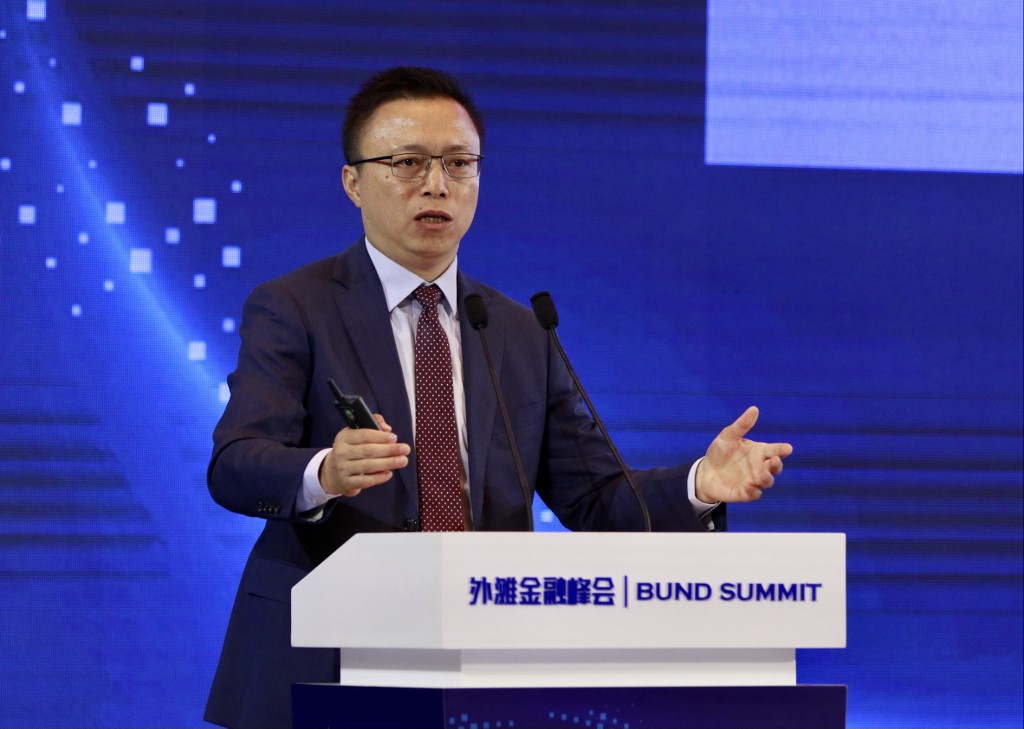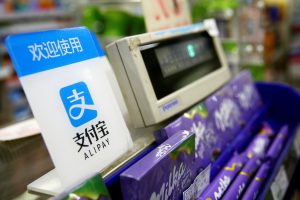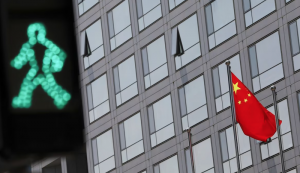(ATF) Jing Xiandong, the executive chairman of Ant Group, told an emergency executive meeting on Tuesday night that the company’s Initial Public Offering is “conservatively estimated” to have been set back by at least six months.
Tencent News reported that Jing – also known as Eric Jing – called for the emergency meeting after Shanghai and Hong Kong stock exchanges informed the group its IPO had been suspended, and gave that estimate, citing a source close to the situation.
The source said that Jing was relatively optimistic at the meeting. He explained to the participants that government supervision is needed for the purpose of consultation, and that Ant needs to meet certain requirements specified by the authorities as soon as possible.
Asia Eight: Daily must-reads from the world’s most dynamic region
Jing said on the same night that subscription funds for Ant’s IPO will be returned to investors, including strategic investors and retail investors who subscribed through Alipay. When Ant Group reapplies for listing, investors can subscribe again, he said.
The shock news from government regulators came just 36 hours before Ant was due to list on the Shanghai STAR Board and the Hong Kong Stock Exchange – in what was expected to be the world’s largest-ever listing.
The Shanghai Stock Exchange posted a statement on its website saying it decided to suspend Ant’s IPO because “ongoing changes to the financial technology supervision environment” may disqualify Ant for listing or for information disclosure requirements. Ant’s Hong Kong leg of the IPO was also suspended.
The statement cited a clause in the STAR Board IPO rule related to the “timely update of information disclosure document” as the reason for the suspension.
In another report, Tencent News quoted a former employee of the IPO vetting department of the China Securities Regulatory Commission (CSRC) as saying that “as long as Ant provides clear explanation to the stock exchange and the stock exchange approves such explanation, its listing should not be a problem.”
A similar case happened in December 2010 when Hunan-based liquor maker Jing Sheng He Shan was suspended from an IPO on Shenzhen Stock Exchange because it failed to disclose transactions with its affiliated companies in its prospectus. The company’s IPO was later terminated, and its actual controller and underwriter were penalised.
But the CSRC former employee was optimistic about Ant’s case, believing the outcome will be positive.
‘Move to protect investors’
“The authority has suspended Ant’s IPO to protect investors’ interests,” Zhao Yuejuan, an analyst from Huatai Securities, said in a commentary.
The central bank and the China Banking and Insurance Regulatory Commission issued new rules on Monday for online micro-lending, and they were expected to have a significant negative impact on Ant’s consumer lending units Huabei and Jiebei, she said.
According to her analysis, Ant does not meet the “lower leverage” requirement specified in the new rule. Ant Group’s capital ratio in its micro-lending balance is much lower than required, which means the leverage is way too high.
Jefferies provided a similar analysis in its commentary on the new micro-lending rule, saying it will lower the profitability for online lending and fintech platforms such as Ant Group.
“We estimated that capital requirement can be 2.7 times of current capital for Ant Group’s two online micro-lending companies assuming 60% of its RMB 1.7 trillion facilitated loans are via co-lending model,” they said.
‘Excessive fees’
In one article drafted by a CBIRC official, published immediately after the drafted rule, fintech companies are criticised for regulatory arbitrage, unfair competition with financial institutions, charging fees that are too high, excessive credit, and illegal information trading. The rate charged by Ant’s Huabei is reportedly higher than credit card interest rates.
However, critics have said the reason for suspension goes beyond Ant Group’s compliance issues and it is “a clear political statement”.
“The suspension is a clear political statement that Beijing expects even its most important private companies to toe the line. Ant’s Jack Ma had made aggressive comments last week criticising China’s state banks and implicitly the regulators. China’s leadership wants to ensure Ma stays within political bounds, and also is not tempted to challenge the authority of regulators – a critical issue given Ant’s systemic importance to China’s financial system,” Xiaomeng Lu, a senior analyst of Eurasia Group’s geo-technology practice, said.
Jack Ma, one of China’s richest and most powerful business figures as well as Ant Group’s controlling shareholder, recently criticised the Chinese banks for having a “pawnshop” mentality and said the global financial system needed to be restructured to incorporate all internet financial systems.
Investors shocked by last-minute decision
Hong Kong’s “mom and pop” investors had been looking forward to an instant jackpot via Ant Group’s record-busting $34-billion IPO. Instead, the shock suspension of the listing left them baffled and angry, AFP reported.
Demand was so strong in Hong Kong that Ant announced it was going to stop selling a day early, while in Shanghai it was more than 800 times over-subscribed.
Unlike in mainland China, Hong Kong allows margin financing, permitting investors to borrow large sums of money in the hopes of boosting their chance of share allocation. Investors bet on a debut share spike, pay back the loan and pocket the gains while banks and brokers make money from interest.
Barring small interest payments – which some institutions may forgive – investors will get their money back.
But many in Hong Kong nonetheless expressed frustration at how Chinese regulators had made their decision so late.
“This is an international joke,” fumed Winni Cheung, 31 and self-employed who invested over HK$200,000 ($25,800) on Ant. Adding salt to her wounds, she said, was the HK$10,000 her shares in Alibaba – Ant’s parent company – lost on Wednesday morning as markets reacted.
“(Chinese) state media said the suspension was to protect investors like us but if they really wanted to protect us, they should have stopped the IPO when the company submitted its application for scrutiny,” she added.
Jackson Wong, an asset management director at Amber Hill Capital, said investors were “expecting a huge pop on the first day… anything from 30 to 50%”.
“So that would be a pretty good payday for lucky investors who will be allotted shares. Now, instead, they will not get any allotment, the IPO is not going to come. And also they might face some interest payment on their margins.”
Chris Liu pulled together HK$1.3 million for Ant shares – HK$900,000 from margin financing.
“When I saw the news last night, my first reaction was that the Chinese government is really unbelievable,” he said. “I didn’t expect the IPO to go wrong like this.”
State uncomfortable over Ant’s huge influence
China’s last-minute decision was quickly interpreted as a signal from the nation’s communist leaders that they were uncomfortable with the enormous influence of Ant, which has helped revolutionise commerce and personal finance but eroded the power of state financial institutions.
The opaque and often unpredictable relationship between the Chinese state and business is something many in semi-autonomous Hong Kong are becoming more familiar with.
Liu said he felt Ant’s sudden troubles were a reminder of the Chinese state’s power.
“When a giant like Ant can fall like this, what can we ordinary people do?”
With reporting by AFP
























